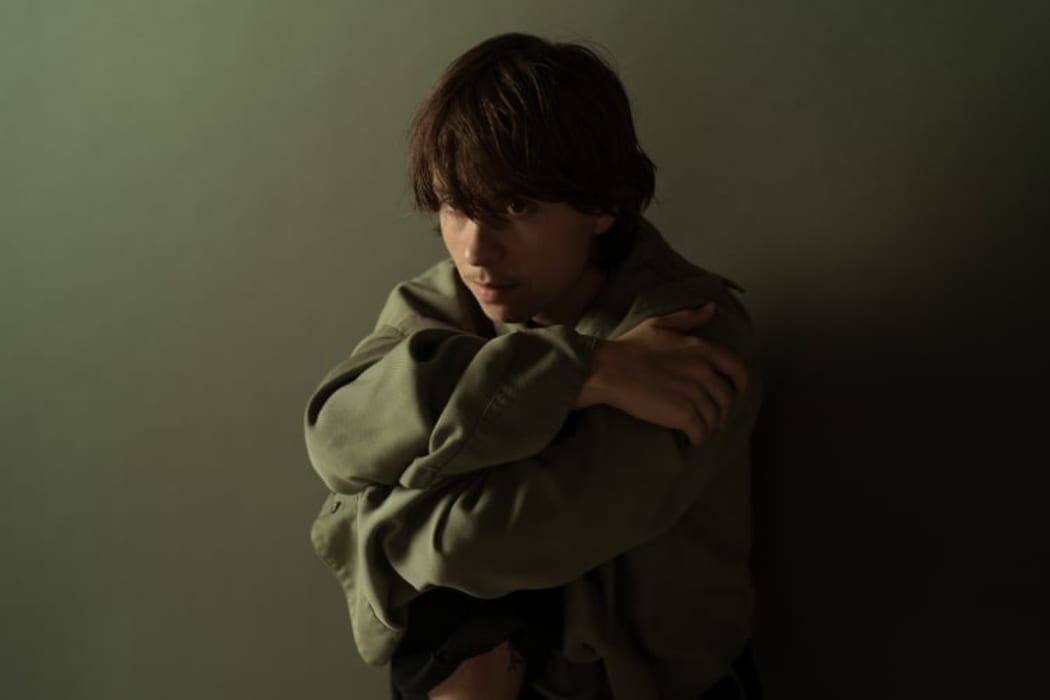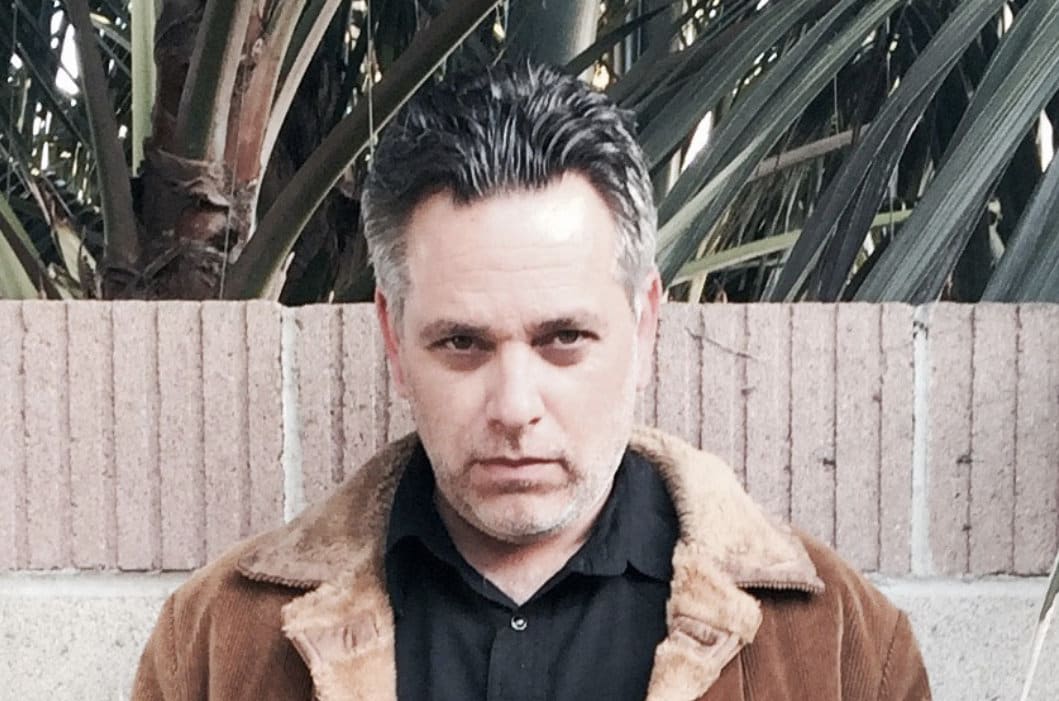Tony Stamp locks ears with Auckland producer Leaping Tiger's sophomore album, folk artist Hand Habits' expansive new work, and the sixteenth long player by indie stalwarts Starflyer 59.
Soulsleep by Leaping Tiger

Jacob Park AKA Leaping Tiger Photo: supplied
When a music producer puts out a solo release it can operate on a few different levels. It’s a chance for them to work to their own brief rather than a vocalist’s, and create a body of work that says something. But it can also serve as a calling card - a way to show any new tricks or techniques they have up their sleeve. Songwriters put notes together and sing over them, producers have to prove their technical chops. A solo project says: this is what I can do.
I get that sense from this album. There are vocalists here, and Leaping Tiger makes his singing debut too, but throughout there’s a restless, experimental energy, like he’s trying to create sounds you haven’t before.
Leaping Tiger’s real name is Jacob Park. He’s in his early twenties, and released his first album last year, featuring guests like Church & AP, Disciple Pati, and Maxwell Young. He operates in a kind of futuristic hip hop dance space, but what grabbed me about this new album Soulsleep is its exploratory nature, right from its opener 'Sovereign', which has him manipulating his own voice.
Park sings lead on the single ‘Gooey’, maybe the closest thing here to a pop tune. His lyrics are admirably honest, written about a fresh breakup, but I like the playfulness of making his jealousy over his ex’s new man a physical thing, saying his mind is swimming in goo. ‘These thoughts are sticky, shameless’ he says, making it clear they’re ‘toxic, [like] asbestos’. It’s a pretty clear-headed, self-effacing thing to put in a song. I like the frothy bassline in that one too, it actually sounds gooey.
Auckland singer Lévyne guests on ‘Figure It Out’, paired with another sampled voice, leading to a really lovely last act, the kind of delicate electronic music made by artists like Jimmy Tamborello in the early 2000s. There’s something youthful about its line ‘We can figure it out in my car’ - hopeful despite the melancholy.
On ‘Soliloquy’ Park is joined by the duo Imugi, with Yery Cho delivering one of the psychedelic spoken words verses she’s fond of, Park matching it with a stately, drum-free synth backing.
Soulsleep is full of sonic tricks and surprises, and intentionally or not, Park has made a second album full of left turns, with as much attention paid to soundscapes as beats. The production is immaculate, and there’s a great balance between bombastic rhythms and delicate melodies. The eclecticism impressed me greatly, but the musicianship even moreso.
Fun House by Hand Habits

Meg Duffy AKA Hand Habits Photo: supplied
Meg Duffy is an American musician whose credits as a guitar player reads like a list of indie buzz acts - they’ve played with Weyes Blood, Sylvan Esso, The War On Drugs and Kevin Morby, and have just released their own third album.
Their solo name is Hand Habits - appropriate for a guitar player I guess - and this latest collection sees them tentatively breaking out of the folk rock mould of their first two, to create something a bit weirder, and more fun.
Duffy lives with two other buzzed about musicians - singer and producer Sasami Ashworth, and Kyle Thomas, who makes music as King Tuff. Meg had new material, so Thomas engineered and Ashworth produced, and their contributions have upped the dynamics and variety here, like the drum machine/ synth bop of ‘Aquamarine’ with its guitars processed beyond recognition.
The album is called Fun House, and I’m guessing this was a fun house to be in while they were recording. There’s an interesting dissonance between Duffy’s voice, which sounds naturally plaintive and reserved, and the propulsion of a song like ‘More Than Love’.
Duffy is trans, and I was intrigued by a quote from them which said their music is "influenced by how “the lines between romance and friendship are often blurred” in queer relationships. Hearing that type of perspective, a new one to me, is something I find really valuable. It colours a song like ‘Just To Hear You’, a duet with gay artist Perfume Genius. They repeat the refrain 'I don’t need anything from you’, before strange noises emerge in the bridge and the song stops being a straightforward ballad and becomes a vehicle for whispered erotic imagery.
Elsewhere on ‘Gold/Rust’, a pretty simple metaphor is drawn between those two things - the rust of the past giving way to a shinier present. Duffy belts out the chorus in their highest register, and it’s a wonderfully cathartic moment.
Fun House by Hand Habits took a few listens to grab me, and repeat listens just keep getting more rewarding - those are generally my favourite kinds of albums. It’s aching with sincerity, and full of beguiling lines, but allows for a good amount of weirdness in its margins.
Vanity by Starflyer 59

Jason Martin of Starflyer 59 Photo: supplied
I was introduced to this band recently by that most old-fashioned of methods - a friend recommended them. It turns out they've been around for quite some time - since the nineties in fact - and have just released their sixteenth album.
It’s daunting to have that many albums to catch up on, but I definitely will, because this one is quite something, led by Jason Martin’s rich baritone voice, and his fondness for simple yet scenic guitar riffs.
Martin is in his late forties, and while he apparently feels that his music hasn’t changed much, it’s definitely gone through a few makeovers, from something noisier and closer to shoegaze to the classic song structures here . I’m a big fan of the way he cycles through guitar lines, aiming for melodic resonance rather than anything too fancy. It all feels very open road and wide horizon, maybe in part due to his day job at his trucking company, which he joined in his teens when his dad ran it.
He’s exceedingly down to earth in interviews, someone who isn’t chasing fame or even success, but just needs to keep making albums. The working class attitude permeates the music, I think. It’s meat and potatoes in the best way.
The standout for me is ‘Life In Bed’, a downbeat epic apparently about Martin’s teenage years when he was fond of sleeping in. The song becomes so lugubrious you can almost feel it thickening, every additional guitar line or synth or feedback howl adding up to something weirdly euphoric.
Maybe surprisingly for someone making music this sad, Martin is a devout Christian, and in interviews his faith is never far from his mind. He recently spoke to NPR about getting the blues, and telling himself that "every day is one the Lord made". This was in response to the song ‘Sunrise’, and its blue-collar lyric "I'm usually happy in the morning time / Because the day's problems fill up my nights."
After sixteen albums, this is the most present Martin’s voice has been in the mix. He said it’s the first time an album has been based around lyrics rather than music. Going back to the band’s first albums I noticed another difference - he sings a good octave deeper than he used to. It’s almost like hearing a different singer, and I think this new aged, conversational version suits these weary songs well.
In 'Like to Lose' he sings ‘Sometimes I like to lose - feels better than a win. When everything comes easy, it's tough to try anymore’, another line that speaks to that down to earth attitude, a kind of celebration of adversity.
His son now drums in this band, and the album closes on a song addressed to Martin’s father, whose trucking company he took over and still works at. His father died ten years ago, and the song talks about the struggles he had during his life, and how Martin wishes he were around to ask advice. It’s the kind of sad, thoughtful song that Starflyer 59 do extremely well. I’m glad I have fifteen earlier albums to catch up on.

